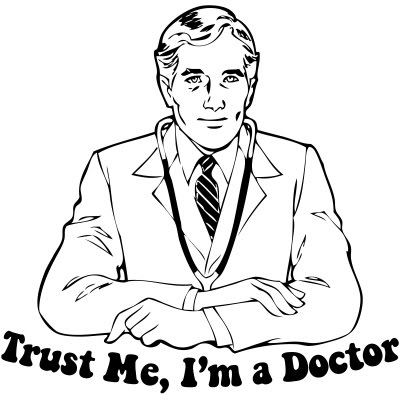 As a surgeon, one of the most difficult things I have to deal with is complications from surgery. Any surgeon that operates regularly will encounter complications. In most cases, these are unavoidable, resulting from the inadequacies of our current techniques and the unpredictable nature of the human body. They can also result from imperfect patients and imperfect doctors.
As a surgeon, one of the most difficult things I have to deal with is complications from surgery. Any surgeon that operates regularly will encounter complications. In most cases, these are unavoidable, resulting from the inadequacies of our current techniques and the unpredictable nature of the human body. They can also result from imperfect patients and imperfect doctors.
Imperfect Patients
We all like to think that we won’t be the one patient in 20 who’s surgery doesn’t work out as expected. I counsel patients before eyelid surgery that 5-10% of droopy eyelid surgeries fail. This is usually due to excessive swelling after surgery, post-operative bleeding, poor tissue strength and asymmetries that the surgery can’t address. Our bodies just don’t always respond to surgery exactly as we plan and knowing who will respond poorly isn’t always predictable. I’ve had patients from time to time get upset after surgery when an eyelid doesn’t stay where we put it. This can almost always be fixed, but certain patients just refuse to accept that they have any responsibility for the surgery not coming out as planned. And by responsibility, I mean this in a rather indirect way. Our bodies are imperfect and don’t always heal or respond to the trauma of surgery as we’d hope. Some patients think that any medical problem they have can and will be fixed, on the first try, if they just do what the doctor has asked. Boy I wish this were true. As doctors, we can only recommend the best course of action that works in the majority of patients, and then hope each individual responds to the treatment in a manner close to what we expect.
Imperfect Doctors
As doctors, we often get more credit than we deserve for “healing” a patient, but we also often get more criticism than we deserve when a treatment doesn’t work out. The truth is, we can only do our best, based on our training and experience. Often, though, this isn’t enough. As imperfect people, we sometimes don’t figure out your problems on the first try. We also can’t always judge the perfect surgical technique to use, if such a thing exists. I’ve seen patients with severe ptosis (droopy eyelids) who despite my best efforts, come back a few weeks later with one eyelid still drooping down. Did I mess up the surgery? It’s possible, but as someone who has done thousands of eyelid surgeries I feel pretty comfortable that I always do my best given the circumstances I have to work under. That being said, some days surgery just seems harder than others and I know that not every surgery can be my best work. My only recourse is that I never close up a patient until I’m satisfied I’ve done all I can. This leaves my imperfections in the hands of the patient to heal as best they can.
When you combine imperfect patients with imperfect doctors, you are bound to get surgical set-backs and complications from time to time. Understanding this, and having a surgeon willing to work with you to make things right once a problem occurs, is an important step in your preparation for any procedure.
